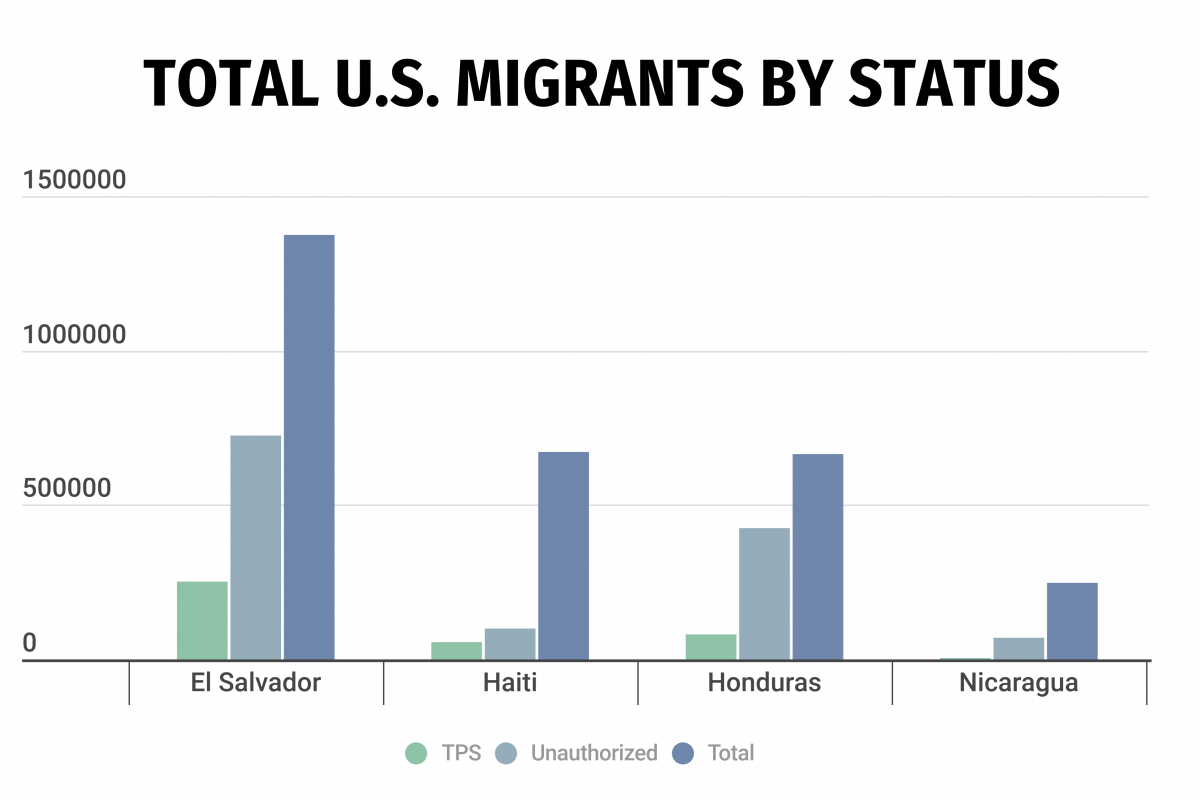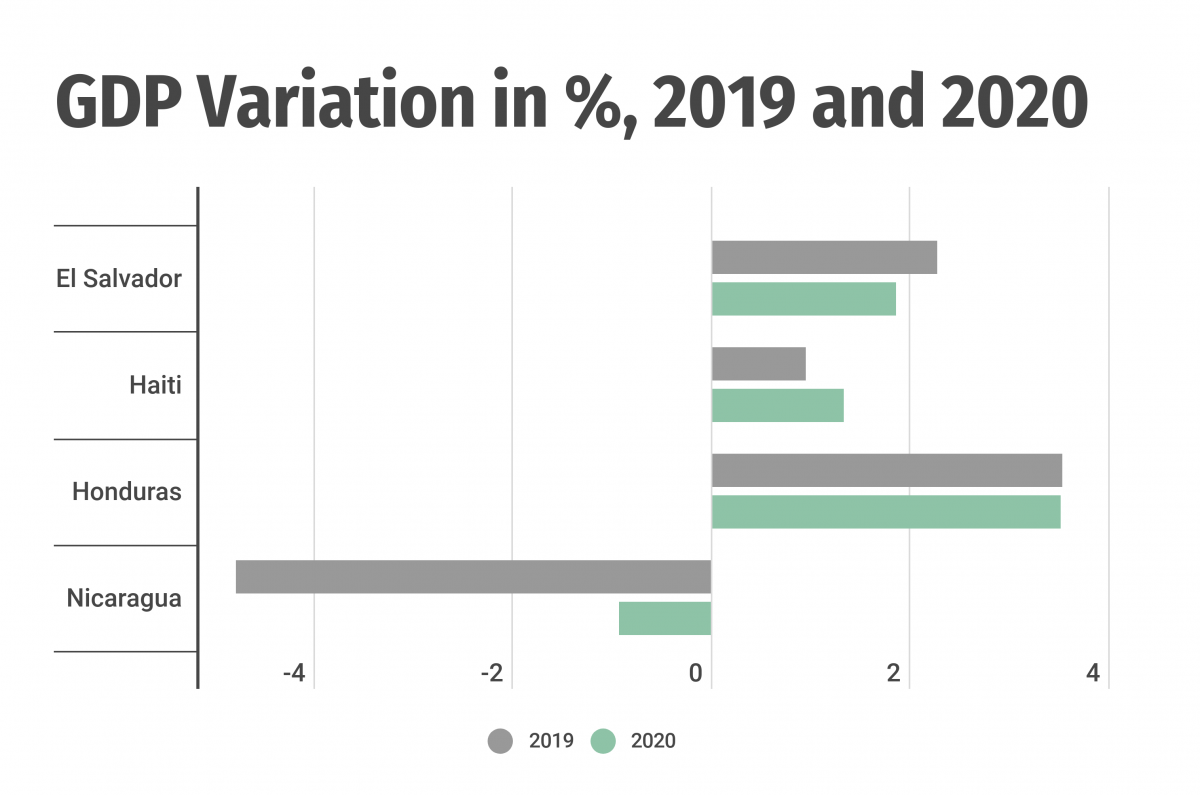- Which Central American countries benefit from TPS?
TPS is currently in place for four countries in the Central America and Caribbean region: El Salvador, Haiti, Honduras and Nicaragua. Approximately 252,000 Salvadorans, 81,000 Hondurans, 56,000 Haitians and 4,500 Nicaraguans have been awarded TPS, according to a 29 March 2019 report by the U.S. Congressional Research Service. However, these figures likely overstate the true number of beneficiaries currently in the U.S., as they don’t take into account immigrants who have since left the country, died, or adjusted their status.
- Which Central American countries benefit from TPS?
TPS is currently in place for four countries in the Central America and Caribbean region: El Salvador, Haiti, Honduras and Nicaragua. Approximately 252,000 Salvadorans, 81,000 Hondurans, 56,000 Haitians and 4,500 Nicaraguans have been awarded TPS, according to a 29 March 2019 report by the U.S. Congressional Research Service. However, these figures likely overstate the true number of beneficiaries currently in the U.S., as they don’t take into account immigrants who have since left the country, died, or adjusted their status.
- What is the future of TPS?
While the U.S. administration has attempted to terminate TPS for these four countries, the move is currently blocked pending a legal ruling, which will likely be announced within the next 12 months. If the case makes its way to the Supreme Court, the administration would likely prevail given the Conservative majority there. On this basis, it seems likely that TPS will be cancelled in 2020. However, victory for the Democrats in the 2020 elections should see a change of stance. The Democrats have shown willingness to allow TPS holders to continue to reside in the U.S., notably through the Dream and Promise Act recently approved by Congress.
- What would the economic impact of TPS cancellation be?
Cancellation could deny former TPS holders of their right to work in the U.S., which would likely hit remittance flows to Central America. Remittances are a key component of all the Central American economies concerned, representing over 20% of GDP in El Salvador and Haiti. They provide a vital source of income to local families—supporting private consumption—and a key inflow of foreign currency, shoring up international reserves. Of the four countries, EL Salvador is likely to be the most affected, as it has by far the largest number of TPS holders relative to its population

That said, it is important to bear in mind that TPS holders from all four countries only represent a small share of total migrants in the U.S, which will limit the impact on remittances. As economists at Bancolombia comment, with specific reference to El Salvador: “this shock will not be a sudden stop because […] remittances [of TPS holders] represent around 13% of the total remittances flow.”

Another key point to consider is what happens when TPS ends. Some current TPS holders should be able to adjust their status and continue residing legally in the U.S. nonetheless, while others may keep working as unauthorized migrants; in both cases this would dampen any decline in remittances. Moreover, it is unclear how strictly and swiftly the U.S. administration would move to enforce a cancellation of TPS. According to analysts at Bancolombia: “With Trump’s government on board, there is a lot of uncertainty”.
On balance, an end to TPS will likely have a material negative impact on growth in El Salvador, Honduras and Haiti, as some drop-off in remittances would be expected as a result. Nevertheless, the impact would not be catastrophic, and the exact extent of the damage is still up in the air. In Nicaragua, the impact should be negligible due to the relatively small number of citizens affected. In 2020, our panelists foresee a solid GDP expansion in Honduras; modest economic growth in El Salvador and Haiti; and a small contraction in Nicaragua.

Claudia García, researcher at the Rafael Landívar University, highlights the potential wider economic impact across the region:
“In the case of Guatemala, it affects migration from El Salvador and Honduras. If the TPS is terminated, and many people cannot stay in the United States […] many people would migrate to Guatemala […] since Guatemala is the biggest country from central America and the easiest to migrate to. […] So this is also an indirect and negative (but important) impact for Guatemala.”